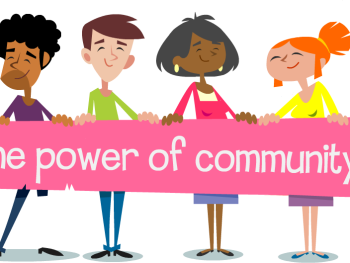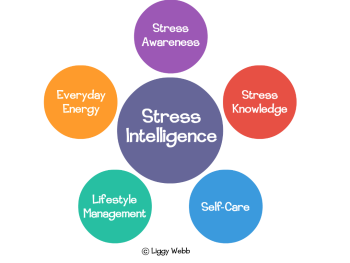How to avoid burnout

Coronavirus has plunged the world into extreme volatility; uncertainty and a way of living that most people are not used to. Stress levels are high and all of this is potentially taking its toll on people’s mental health, particularly those already living with conditions like anxiety and OCD. So it is important to look after your mental health and avoid burnout by managing your stress levels well.
So what exactly is burnout?
Burnout is a state of emotional, physical and mental exhaustion caused by excessive and prolonged stress. It occurs when an individual feels overwhelmed, emotionally drained and unable to meet constant demands. The creep of burnout can be insidious. Everyday pressures can build up and affect your stress levels without you even being aware that it is happening.
The American psychologist Herbert Freudenberger coined the term ‘burnout’ in the 1970s. He used it to describe the consequences of severe and high ideals in ‘helping’ professions. Burnout, however, can affect everyone and anyone.
Whilst elevated stress isn’t a mental health problem in itself, it can often lead to anxiety and depression. It can also lead to physical health problems such as cardiovascular disease and joint and muscle problems through prolonged tension.
Understanding your own relationship with stress is fundamental in terms of your personal well-being and mental health. There are various ways that you can help yourself to avoid burnout and here are a few suggestions:
Unplug yourself
A number of studies have alerted us to the mental health implications of excessive Internet-browsing, texting, gaming, emailing and social media. FOMO has been recognised as an emerging psychological disorder brought on by the advance of technology. It is an acronym standing for the expression ‘fear of missing out’.
Whilst you will want to know what is going on in the word right now, it is important to limit your exposure to news, as it will trigger anxiety.
Replenish yourself
Imagine you are a car. You will only get so far on the fuel that you have in your tank. If you don’t stop along the way to refuel you will conk out! It is so important to create moments of sanctuary within your day to replenish your physical and mental energy. Find time to rest and relax so that you can recharge.

Set personal boundaries
Personal boundaries are essential to healthy relationships and managing unnecessary stress. Having healthy boundaries is about knowing and understanding what your limits are. To set healthy boundaries you need to consider what you can tolerate and accept and what makes you feel uncomfortable or stressed.
Boundaries are a sign of a healthy relationship with yourself and a sign of self-respect. Putting yourself first also gives you the energy, peace of mind and positive outlook to be more present with others and be there for them. It is essential to give yourself the permission to set boundaries and work to preserve them.
Practise mindfulness
The term mindfulness comes from Eastern spiritual and religious traditions. It is a very old concept and is a key part of Buddhism and also appears in Hindu writings. A great deal of scientific research now shows that the mindful approach to stress, anxiety and mental health is a very helpful and popular way of dealing with and diffusing high levels of stress.

Sleep well
Lack of good quality sleep can affect your memory, judgment and mood. Stress levels can increase when the length and quality of sleep decreases. Sometimes you may find yourself lying in bed worrying and feeling anxious, which can make it almost impossible to relax enough to fall asleep.
Poor quality sleep can take its toll on both your physical and mental health so it is essential to understand how to invest in quality sleep, which will play a big part in helping you to avoid burnout.

I am doing some fundraising for the NHS and care workers and will be hosting some wellbeing webinars during the Easter weekend. They are designed to be uplifting, informative and fun!
If you would like more information on how you can attend any of the webinars please do email me liggy@liggywebb.com
For updates for future blogs, free webinars and various other useful resources please do join my newsletter.










 Liggy joins Jon Smith as co-host on BBC Radio Gloucestershire
Liggy joins Jon Smith as co-host on BBC Radio Gloucestershire


